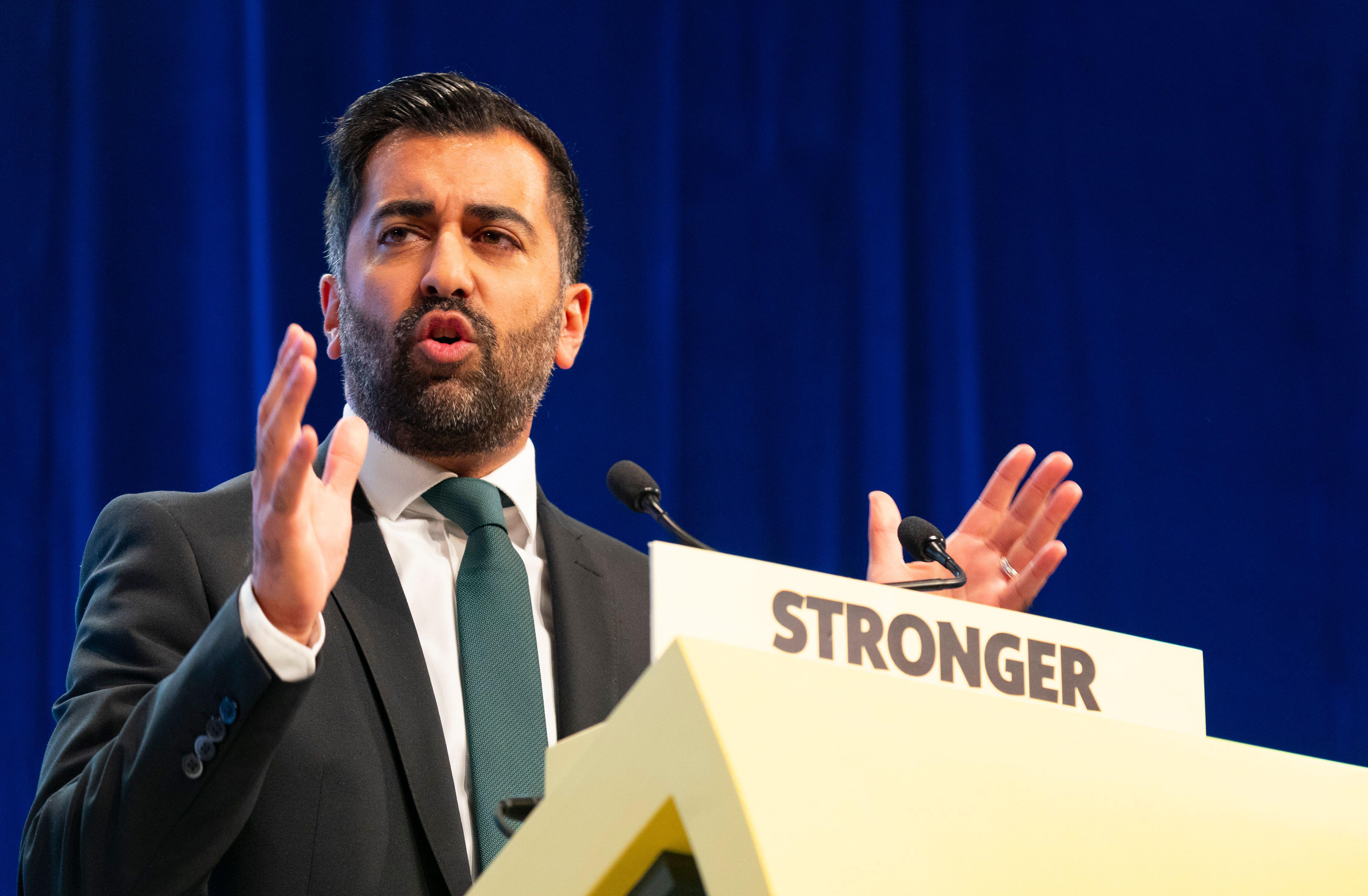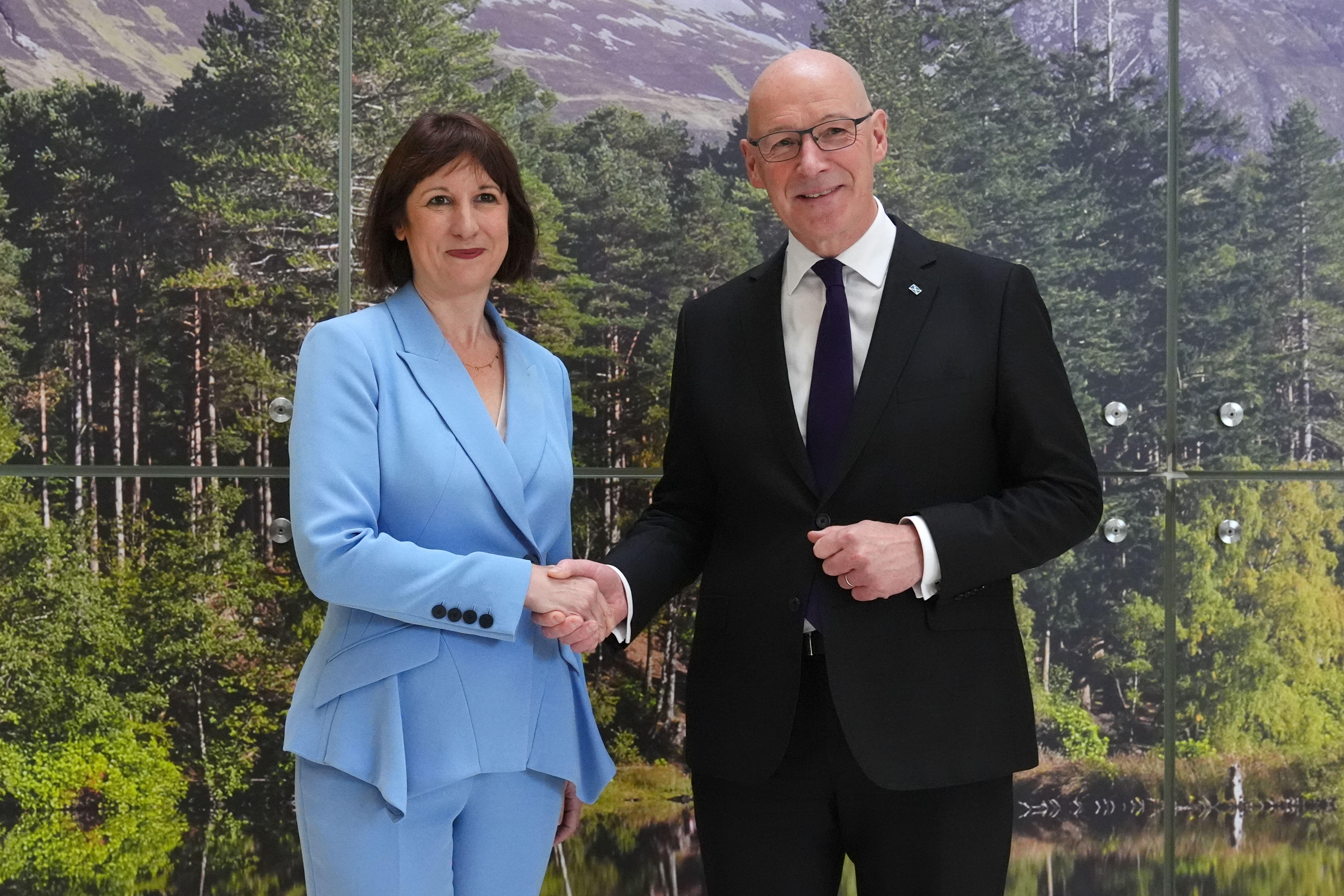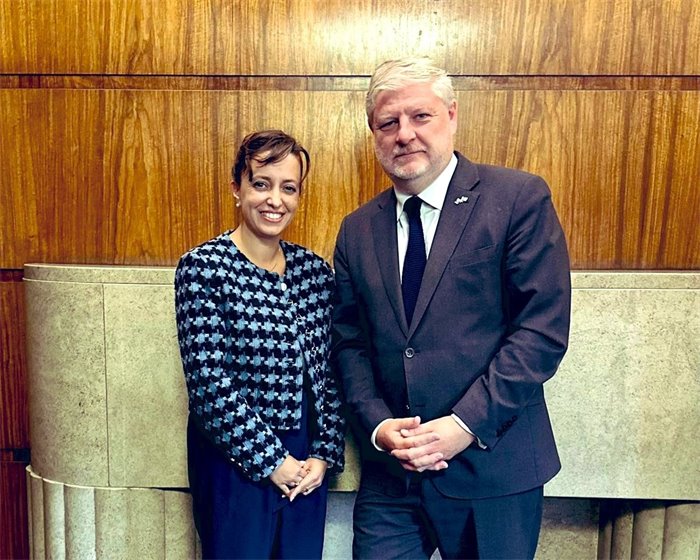Death by a thousand cuts: The SNP's financial mismanagement will cost it dearly
As this year’s Edinburgh Festival drew to a close, artists and performers took to the stage a final time, not for one last curtain call but to protest against Scottish Government cuts. The cast of The Outrun, the theatrical version of Orcadian writer Amy Liptrot’s memoir, who had met First Minister John Swinney earlier in the month, were among those highlighting Creative Scotland’s decision to pull its Open Fund for Individuals amid concerns over future government support.
Less than a year earlier, then first minister Humza Yousaf had stood on another stage telling his audience he wanted to send a “clear signal about my ambition for culture in Scotland”.
Addressing delegates at the SNP’s annual conference in Aberdeen, Yousaf said: “We’re not just going to protect our arts funding. We’re not just going to increase it in line with inflation. No delegates, we’re going to go further than that.”
The first minster, whose days in office were already numbered, promised to double investment in the arts over the next five years, increasing overall funding by £100m over the period. He also pledged to freeze council tax, a seemingly eleventh-hour addition to an otherwise lightweight speech. As Yousaf’s party goes into this year’s conference – now with Swinney as leader – it’s clear there’s not just little money left for the arts, but little money left for anything.
Finance secretary Shona Robison will this week address the Scottish Parliament on the “profound” financial pressures now facing the government. Last month she put a halt to all but essential spending, reportedly instituting “emergency controls” with immediate effect to help fund public sector pay deals. While Robison has been quick to blame the new Labour government, with both Chancellor Rachel Reeves and Prime Minister Keir Starmer making a number of apocalyptic noises about the outlook in recent weeks, experts including the Scottish Fiscal Commission (SFC) have said the Scottish Government must take its share of the blame for the situation the country now finds itself in.
Publishing a series of reports last week, the SFC said the impact of public sector pay deals higher than the rest of the UK, the council tax freeze and social security reforms had all contributed to the budgetary pressures the government at Holyrood now faces. It said the £25bn of resource expenditure required for public sector pay now makes up over half of the resource budget, having a “significant effect” on government spending.
Previously, João Sousa, a senior economist and deputy director of the Fraser of Allander Institute, said the government’s “lack of prudence” in passing a budget without a set pay policy – leaving it open to the vagaries of the labour market – had been a “major part of the story”.

Humza Yousaf makes his speech to conference last year | Alamy
It’s clear the pain has only just begun. In the past few weeks, the Scottish Government has followed its Westminster counterpart’s lead, scrapping universal winter fuel payments for pensioners. It has also axed free bus travel for asylum seekers, reintroduced peak rail fares, diverted money for flood defences, and suspended a scheme which provides free laptops and iPads for those in society who have trouble getting online.
But as controversial as those decisions proved to be, they could pale into insignificance compared with some of the more radical ideas currently being discussed within government. That includes a re-writing of what Robison is fond of calling the government’s “social contract” with the Scottish people, including the reassessment of expensive universalist policies such as free prescriptions, free bus travel and free university tuition.
Last week, The Times reported that Caroline Lamb, the director general for health and social care, had warned civil servants about the cost pressures affecting the government, with her own department facing a £1.1bn spending gap made up in part by above-inflation pay deals. Lamb said officials had to put all options on the table to allow ministers to make difficult choices, a process she described as a “reset moment” across government. Swinney, however, has since indicated that universal benefits are likely to remain.
Having gone into the election promising not to raise taxes for “working people” or return to austerity – Anas Sarwar memorably used a TV debate to say: “Read my lips. No austerity under Labour” – the UK Government has changed its tune considerably in just a few short weeks. First, the chancellor warned of a £22bn “black hole” left by the Tories in the public finances, with “difficult decisions” needed to find £5.5bn of savings this year and £8.1bn next year. Then Starmer used a speech to journalists on the sun-dappled lawn of Downing Street’s rose garden to describe an increasingly bleak outlook in the months to come.
“I’ll have to turn to the country and make big asks of you…” Starmer said. “To accept short-term pain for long-term good. The difficult trade-off for the genuine solution. And I know that after all that you’ve been through – that is a really big ask and really difficult to hear.”
Just two months on from the election, the direction of travel is already clear. As well as introducing means-testing for winter fuel payments, the government has so far rejected calls to scrap the two-child benefit cap, a move that could cost up to £3.6bn. In July, the party suspended seven of its MPs, including ex-shadow chancellor John McDonnell, after they backed an SNP amendment calling for exactly that.
For its part, the SNP is clear – the Labour position amounts to a return to austerity. Following Starmer’s speech in the rose garden, Swinney tweeted: “Throughout the election, I warned about the huge financial pressure in public services… I was told there would be no austerity under Labour. Well, here it is. Scotland will be affected by UK decisions.”
And so, the battle lines are drawn ahead of the next Scottish Parliament election, a prospect that is still almost two years away. At First Minister’s Questions, Scottish Labour will bemoan increasingly swingeing cuts to key public services, while the SNP will blame the financial constraints foisted on Scotland by Westminster. It remains to be seen what the public will make of it.
For the time being, it doesn’t look as if the SNP’s fortunes are likely to improve. The party went into its annual conference in Edinburgh on a massive downer after a general election result that surpassed even the grimmest prognoses. According to Westminster leader Stephen Flynn (interviewed elsewhere in this magazine) things could have been even worse had the party not – painfully – extricated itself from a power-sharing agreement with the Scottish Greens, a decision that ended Yousaf’s tenure as first minister.

Chancellor Rachel Reeves met First Minister John Swinney in Scotland last week | Alamy
One of the party’s former MPs told Holyrood there had been real anger on the campaign trail about its direction of travel, much of it expressed in spoiled ballots papers shown to the candidates before the results were announced.
“I had a huge bundle this time,” she said. “It takes a lot for a member of the public to go to the polling station to register their anger, their frustration...by spoiling a ballot paper. There were three things that were mentioned – the state of Glasgow, gender issues, but the biggest group of spoiled ballots was due to the lack of movement on independence. For a party whose purpose for being is independence, we need to get that back into the narrative.”
Indeed, despite famously being on ‘page one, line one’ of the party’s manifesto, the constitution was barely mentioned in the run-up to the general election and has dropped off the radar completely in the weeks since. After Nicola Sturgeon’s high-stakes gamble of going to the Supreme Court backfired, the SNP has found itself painted into a corner with no obvious means of securing a referendum. Now ruling as a minority administration, its need to build cross-party consensus to pass pieces of legislation – notably the upcoming Budget – could limit the SNP’s opportunities to talk up the benefits of separation.
With polling consistently showing that around half of Scottish voters continue to back independence, we might have expected lost SNP votes to go to former first minister Alex Salmond’s Alba party at the election. But despite fielding candidates in 19 seats, the party’s best performance was in Cowdenbeath and Kirkcaldy where Neale Hanvey secured just 2.8 per cent of the vote.
That could change at the next Holyrood election, however, if recent polls are to be believed. A recent Norstat survey, carried out on behalf of The Sunday Times, put Alba on four seats following the vote in May 2026. The same poll put the SNP on 41 seats – one ahead of Labour but significantly down from the 62 MSPs it currently has. The poll also put the Greens on 10 MSPs, the Tories on 18 and the Lib Dems on eight – the same number as Nigel Farage’s Reform.
There’s a long way to go before then, of course, but given the scale of the fiscal challenge facing the Scottish Government – Swinney has called it the “most challenging financial environment since devolution” – it will be difficult for the SNP to build any kind of momentum whatsoever. Quite the contrary, after 17 years of power, the party currently appears to be in a death spiral.
Everywhere you look, things seem to be tracking in the wrong direction. NHS waiting lists are rising, while educational attainment is falling. On drug deaths, a deep source of shame for ministers, limited progress appears to have stalled, with 1,172 Scots dying in 2023 – a rise of 12 per cent on the previous year. Worryingly, two prescription medications – pregabalin and gabapentin – were implicated in 40 per cent of the deaths.
 Angus Robertson with Israeli deputy ambassador Daniela Grudsky | X (Twitter)
Angus Robertson with Israeli deputy ambassador Daniela Grudsky | X (Twitter)
Despite a largely quiet recess period, the SNP nevertheless managed to fill the void with a major internal row over external affairs secretary Angus Robertson’s decision to meet an Israeli diplomat. For a party usually so keen to meet foreign dignitaries – think Humza Yousaf posing with Turkey’s Recep Tayyip Erdoğan at COP28 much to the evident displeasure of the UK Government – the SNP had been a bit coy on the meeting with the deputy ambassador until she tweeted a picture of herself with Robertson.
Once so adept at PR, it took the party over a week for finally draw a line under the story, with Robertson issuing a statement in which he apologised for appearing to “normalise” the Scottish Government’s relationship with Israel. Even then, the government was criticised by Colin Cowan, whose brother Bernard, originally from Glasgow, was murdered by Hamas terrorists on 7 October. He said former first minister Yousaf’s visit to a Newton Mearns synagogue to meet Bernard’s grieving mother had been a “cynical Jew-washing exercise”. The government’s decision to effectively suspend meetings with Israel only for the first minister to meet the head of the Palestinian Mission to the UK looked inept, to say the least.
After dominating Scottish politics for nearly two decades there’s a sense of inevitability about where the SNP is currently headed. Swinney has spoken of the need to “learn lessons” from the nationalists’ sobering election result – he’ll be hoping voters aren’t preparing to teach his party another one in 2026.
Holyrood Newsletters
Holyrood provides comprehensive coverage of Scottish politics, offering award-winning reporting and analysis: Subscribe